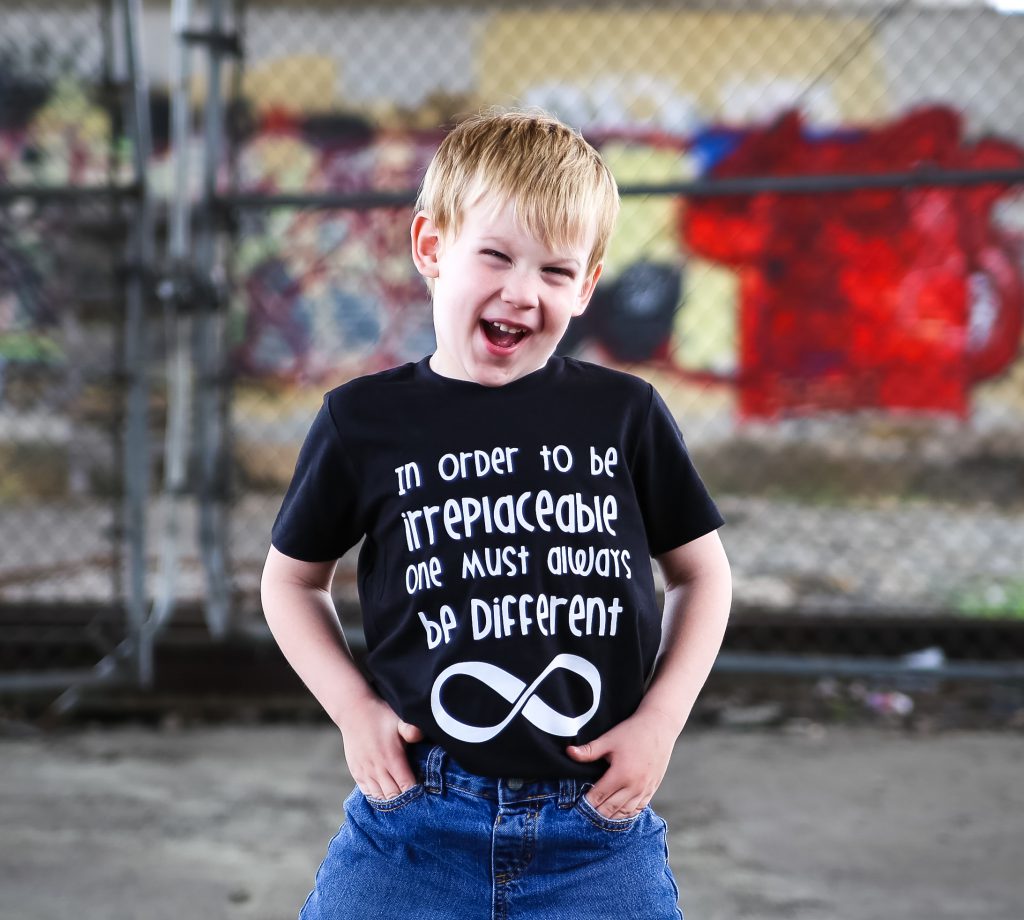
Today is the last day of Autism Awareness Month and I wanted to end with a bang. I want to talk about invisible disabilities. Autism is just a small slice in the invisible disability world, studies show that 96 percent of people who live with an illness live with an invisible one, and 73 percent of people who live with a severe disability do not use devices like a wheelchair. This means that when you look at them, you wouldn’t know that they’re disabled. Think about how many people you see who are clearly disabled during an average week. Statistically, for every person you’ve seen who looks disabled, you’ve seen at least 4 more who are disabled but don’t look it. Circling back to my soapbox, out of that staggering number, 1 in 59 of children recieve an Autism diagnosis.
They don’t look it.
So how can you tell? Often times you can’t unless you know what to look for, and even then it’s a gamble. It’s best to just be a decent, non-judgmental, and compassionate human being.
According to the American Occupational Therapy Association, sensory processing affects virtually all aspects of a child’s daily life, including motor coordination, school performance, and relationships. A child with sensory processing disorder could have 20/20 vision and perfect hearing, but when he’s in a crowded mall, his brain is not able to manage all of the auditory and visual information he’s receiving through his eyes and ears.
While each kid reacts differently to overstimulation, some will scream or become physically aggressive. What may look like defiance is just a kid doing his best to manage a stressful environment.
The assumption that a lack of discipline indicates a failure by the parent is totally without merit. Often times, people mistake sensory processing issues as discipline issues. No Karen, my child doesn’t need XYZ punishment, he needs calming techniques and resetting. Discipline will not prevent him from being overwhelmed by his environment.
I’m starting to learn that sometimes we just need to leave a playdate when Everett starts having meltdown signs. It sucks for everyone, but the last time we didn’t leave he bit a child. Twice. I’d rather be judged for “indulging ” my child than to have him physically hurt another child. It’s sad, because it seems like this is the beginning of feeling like I’m isolating him from the world.

I’m fortunate to have understanding friends who know Everett often doesn’t mean to be aggressive towards their children, but I get an overwhelming amount of judgment from others.
They see a perfectly normal child, who is aggressive towards their child, who doesn’t respond to normal societal behavior expectations and assume he’s a bad kid. They act shocked that this “horrible” kid is allowed to be at the playground. When I try to explain that he’s learning or on the spectrum I’ve gotten dirty looks.
When I try to calm Everett down I hear their snide remarks about how he’s bad because obviously I don’t know how to discipline him “correctly.” I hear them telling their child to not play with mine.
What I rarely hear are the parents using the moment as a teachable one. They could just as easily teach compassion and inclusion, but they often don’t. They act shocked by his diagnosis. I hear “he looks normal” “but he’s so smart.”
Just because you can’t see it, it doesn’t mean it’s not there
Autism can be invisible. This fact is a double edged sword. It will help my son in life, and it will hurt him at times. The fact that one cannot see his autism spectrum disorder, will at least impact how people will judge him. It will also leave him vulnerable to misunderstanding and unsolicited judgements. So much of how we deal with situations and people is based on our perceptions. Sometimes our perceptions are born from experience, knowledge and our personal ideologies. But sometimes they are born from fear, misunderstanding and ignorance.
When a parent is struggling to find a diagnosis, pay for therapies, or just get through the day with a kid who has an invisible disability, it is not helpful to insist nothing’s wrong because their kid looks so “normal” or that their IQ is so high. What may be intended as a compliment may come as a slap in the face to the parent who has committed precious time, energy, and money to her child’s disability.
Parents of kids with invisible disabilities are not just responsible for feeding, clothing, loving, disciplining, and teaching their kids. They must also advocate for their kids in a system that does not always have their best interests at heart.

Parenting is hard enough without adding other people’s assumptions to the equation. Parents of kids with invisible disabilities just want the world to know that it’s only okay to assume one thing: They and their kids are doing the best they can.
After all, human beings are not all cookie-cutter perfect nor the same. We all have different weaknesses and strengths. Therefore, instead of expecting everyone to fit the same mold, let’s look for each person’s individual, exceptional qualities and show them our admiration for their courage in the midst of their hurdles.



Omg!!!!! You are speaking my truth! If I had a penny for every time someone told me how normal my son looks I’d be a billionaire! Absolutely ridiculous how people think they can compare their child to mine or that just because he “looks” normal that there aren’t challenges there. (As if I would make this shit up)…but, you just met him…you’re right…he’s “fine.”
Thanks for writing ✍️ this! I’ve been wanting to share this message for a long time!!!
Thank you for reading it! I’m so glad you liked it! ??
There definitely isn’t enough out there about the struggles of raising a super special kiddo!